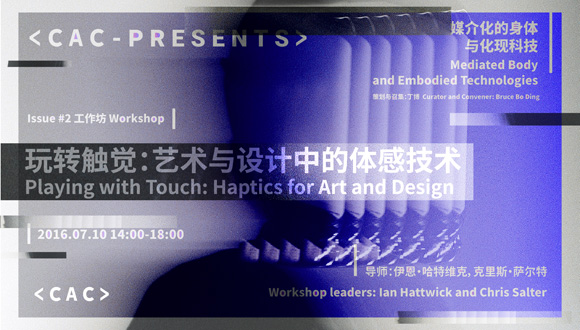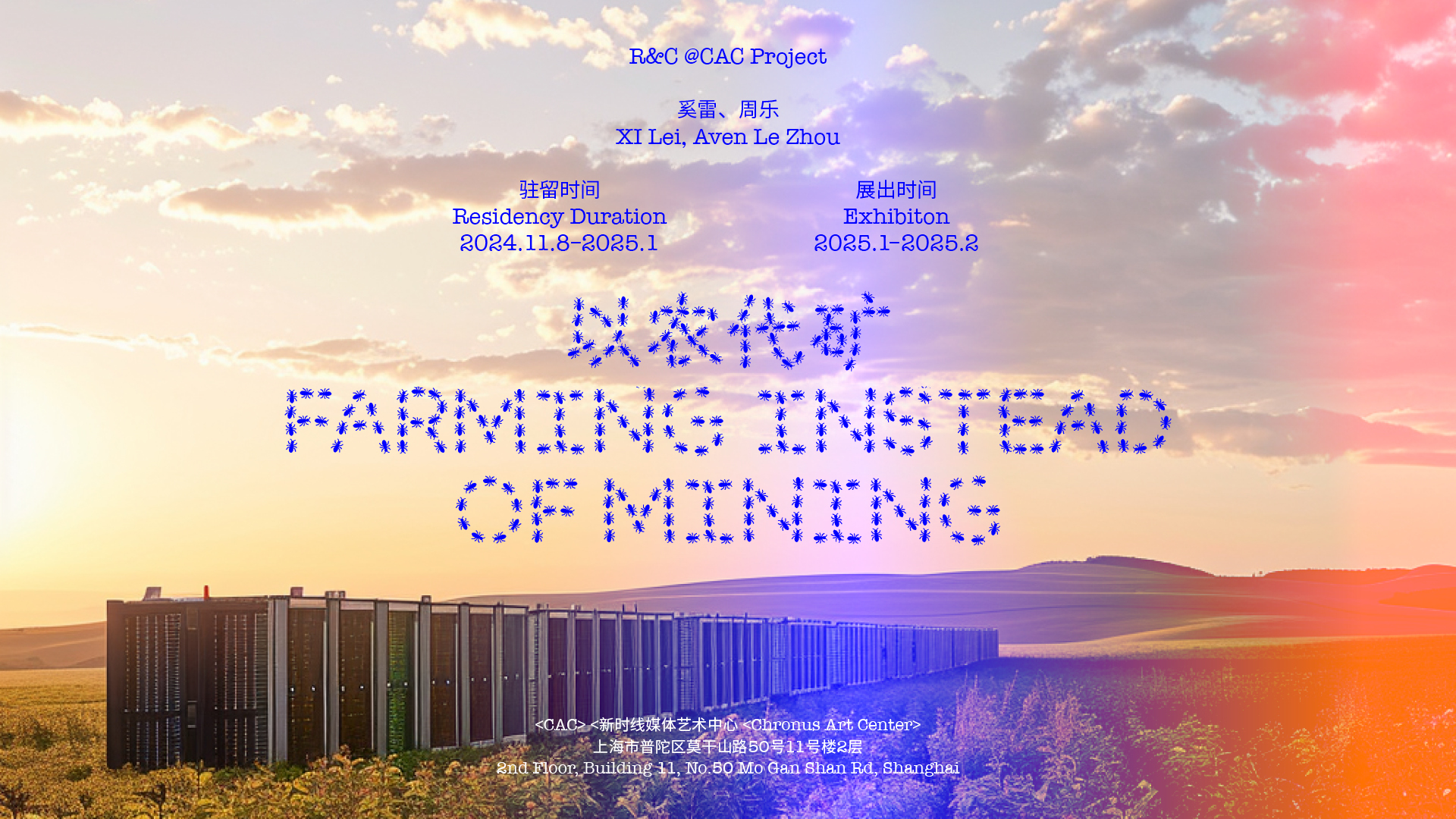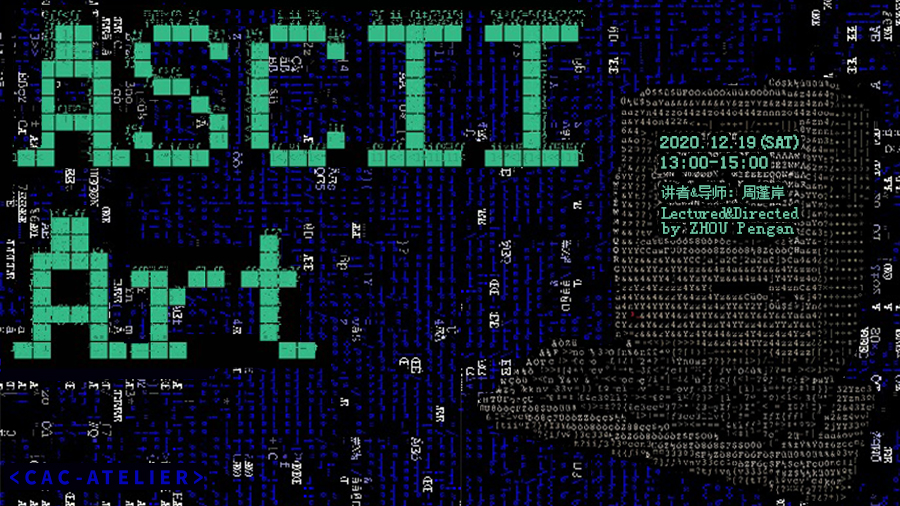Mediated Body and Embodied Technologies
Issue #2 Workshop | Playing with Touch: Haptics for Art and Design
Workshop Leaders: Ian Hattwick and Chris Salter
Time: 2016.07.10 14:00-18:00
Language: English
Organizer: Chronus Art Center
Address: Building 18, No 50 Moganshan Road, Shanghai
(Free admission, but there are only 12-15 seats available, please register in advance )
Introduction
This hands on workshop will introduce participants to a new wireless, full body haptics (the science of delivering information to the surface of the skin) platform that can be used for developing new kinds of touch-based experiences in gaming, performance, interactive objects and other artistic applications. While the new media arts have long focused on image and sound, new advances in wireless technology, microcontrollers and research into the human understanding of touch have lead to a new focus on using touch as an artistic material. The workshop will first introduce basic haptics principles from scientific and artistic perspectives and then enable the participants to break into small groups to program and develop fast prototypes that will then be shared. It is recommended that the participants have some technical background in either programming, sound or video design or other similar fields.
Course Program
Hour 1: Introduction to Haptics from scientific and artistic perspectives
Hour 2: Introduction to the wireless haptic platform/break into teams
Hour 3: Development of scenarios for games/interactive objects/haptic performances/etc
Last 30 minutes Presentations from the groups
Requirement
- Participants are expected to have some technical background in either programming, sound or video design or other similar fields
- Participants should bring laptops.
About The Workshop Leaders
Ian Hattwick is a composer, performer, and designer of digital musical instruments and interactive artwork. He is interested in ways in which digital technologies can encourage collaborative performance through compositional choices, hardware design, and mapping strategies. His instruments and compositions have been featured in performances in London, Paris, Bruges, Athens, Montreal, and Indianapolis. He is currently a PhD researcher in the Input Devices and Music Interaction Lab at McGill under the supervision of Marcelo Wanderley.
Chris Salter is an artist, Concordia University Research Chair in New Media, Technology and the Senses, Co-Director of the Hexagram Network for Research-Creation in Media Art, Design, Digital Culture and Technology, Director of Hexagram Concordia and Associate Professor, Computation Arts in the Department of Design and Computation Art at Concordia University, Montreal. He studied philosophy and economics at Emory University and completed a PhD in directing and dramatic criticism at Stanford University where he also researched and studied at CCMRA. He collaborated with Peter Sellars and William Forsythe/Frankfurt Ballet in the 1990s. Salter’s work has been shown at major international exhibitions and festivals in over a dozen countries.
Salter is a regular presenter at national and international conferences, has given numerous invited talks at universities and festivals worldwide and has sat on many juries including the Prix Ars Electronica, among others. In addition to his artistic work, Salter’s critical research can be found in his seminal book Entangled: Technology and the Transformation of Performance (MIT Press, 2010) and Alien Agency: Experimental Encounters with Art in the Making (MIT Press, 2015). He is currently working on a new collaborative book project for MIT Press focused on the interconnections between art, research and politics within the contemporary technosphere.
About Mediated Body and Embodied Technologies
“Mediated Body and Embodied Technologies (M.B.E.T.)” is an open-source practice repository and research process addressing the various mechanisms and possibilities of human future mediated by technologies. Started by reflecting and speculating on the relation between the enacted and the represented as well as the virtual and the real (a contingent production rather than a natural inevitability), M.B.E.T. brings back embodiment into the picture to investigate if/how the forms/media of embodiment are relevant in the production of identity and subjectivity as well as the circulation and communication of information. In the spirit of open source, it tries to create a fluid and evolving space in which practitioners and researchers from different areas can come together and contribute in this creative exploration.
M.B.E.T. is organized by Bruce Bo Ding, Public Programs, CAC.





